|
Guest Post by Two Wise Chicks Post Design by Christy Zigweid Photo by Myriams-Fotos via Pixabay made using @WordSwagApp We've been meaning to talk about guilt for some time now. Guilt is a feeling that is familiar to most of us - some more than others of course. And it's something that comes up in our own lives, and with clients. But can it be a good thing to experience guilty feelings? Well...yes and no. On the positive side, guilt can be a way of keeping ourselves in check, a moral compass if you will. It alerts us to the possibility that our behaviour is poor, unkind, even cruel or abusive. Guilt is our gut-check, the internal compass that lets us know it is time to make amends. But what if we feel guilt even when we've done nothing technically wrong? What if we are so accustomed to feeling guilty that we don't even check to see if it's the correct feeling for the situation? Photo courtesy of Two Wise Chicks The list of potential "Guilt Trips" we can take ourselves on is endless:
We think 'Toxic Guilt' should come with a health warning!Guilt keeps us in VICTIM MODE. For example, after getting a sub-par meal, we might say to ourselves 'Oh I couldn't complain to the staff about that... I'd feel so GUILTY!' Telling ourselves we'd feel guilty allows us to dodge responsibility - and keeps us stuck well within our dubious 'Comfort Zone.' Guilt keeps us stuck. It causes us to do things we don't really want to - or not do things we might enjoy - for fear of imagined rejection or judgement. By allowing guilt to go unchecked in our lives, we cheat ourselves out of reaching our potential, and we miss opportunities for joy and fulfillment. For us, the simplest way to erase unnecessary guilt from our lives is to ask ourselves the question: "Have I just done something that's actually wrong?" If we haven't, then our guilt is undeserved, unnecessary and pointless. There is no learning to be gained from it. Just pain. So we can choose to let it go. Side note: We would benefit from identifying what we are REALLY FEELING in these situations. Maybe it's insecurity. Maybe it's shame. Maybe it's fear. Whatever it is, it is NOT guilt. What better time than now to end this tradition of guilt. Instead, let's start a new tradition of responsibility and self-care. Imagine the freedom?!! With guilt-free love, About the Authors Sally O’Reilly
Sally wants to help create a world of compassion for ourselves and others. A world where mistakes are allowed, gender roles don’t exist, sex ed in schools is a real thing and everyone dances – lovely! As a psychologist and psychotherapist in Ireland, she’s worked for nearly twenty years in private practice, with adults and trainee adults of all ages. She blogs on her own website, is a feature writer for super duper parenting website Voiceboks.com, does print and radio media work and has been known to Tweet. She’s the one running our Twitter page! When she’s not working, you will find her engrossed in Science Fiction or some dark and Danish TV show, listening to music, watching the sea (while really, really wishing it were warmer), or figuring out how to work Lightroom on her Mac. All while munching on Bombay mix. #multitasker! She’s happiest when dancing and erm…. her cat has his own Facebook page. We won’t link to that, it’s too embarrassing.. Tanya Tinney Tanya looks forward to living in a world where people know their worth, respect boundaries, and always have time for tea and chocolate. A magic bubble that protects her from sticky fingers, hormonal girls and dog hair would be awesome as well. Her education and much of her training is in the areas of psychology and human potential. She worked as a licensed psychologist for over 14 years, with 10 of those years spent building her own successful private practice. In total, she has over 20 years of varied experience working, volunteering for non-profit agencies, and consulting to small business. Most recently she has launched her dream online coaching practice where she gets to work with motivated, amazing women who need help overcoming life’s hurdles. Exciting times! She has lived in Ireland, Ethiopia (okay, just 6 months), Canada, and currently lives in central Texas with her husband, three girls (including fraternal twins), two dogs and three cats. When she’s not finding ‘everyday moments’ to write about here or on her own blog, you can find her being walked by her dogs, unearthing unidentifiable food-objects under the couch cushions or baking her famous banana bread. Tanya runs our Facebook page – and not to be outdone by Sally’s cat, her dog has its own Facebook page too.
0 Comments
Guest Post by Two Wise Chicks Post Design by Christy Zigweid Photo by Unsplash via Pixabay made using @WordSwagApp If Christmas is in your life, then you will be very familiar with the idea of writing a letter to the big bearded guy. Can you believe it's writing-to-Santa-time again - already?! Typically, young kids' letters are checklists of 'wants', along with parent-nudged-politeness like "Dear Santa, hope you are well and have had a good year", or "I hope Mrs. Claus is well" and, ideally, a "thanks so much for last year's gift I LOVE it! :)" With age and awareness these letters get more personal, and can sometimes include emotional pleas ("climate stabilisation, a different US president") and other more heart-wrenching requests ("please help my gran/brother/aunt/dad get better") These are the things that, unfortunately, Santa can't control. For if he could, I'm certain he would fix all of these things for us... We often can't remember what age we stopped writing letters to Santa. Or why. Perhaps it felt just too 'childish' at some point? Some adults still write them, and beautifully. They'll start popping up on social media around now; moving masterpieces of human desire and hopes, things of beauty. These adults who write to Santa write because they believe that if you don't believe that you can receive, you don't receive. If we don't believe, we don't receive. It seems almost too simple. Can we make ourselves believe (in) something? 'Belief' is something about which we are passionate. Professional and personal experience keeps teaching us that our beliefs about ourselves dictate our behaviours. Ponder this: if I believe I am worthy, I act in ways that reflect that (without having to think a lot about it). If I believe I am not worthy, then I also act in ways that reflect that (especially if I am not thinking a lot about it). Beliefs don't stop at "I am worthy" (although, truth be told, this might be one of the most encompassing and important for most). There are hundreds, maybe thousands of beliefs that inform our lives on a daily basis. Some of the ones that feature in therapy and have wide-and-long reaching effects on a person's day-to-day life include:
Do any of these resonate with you? Can we change what we believe about ourselves? Yes we can, with awareness and practice. It means choosing to think and act in ways that align with what you would rather believe about yourself. And doing that over and over. And over. Repeating these (more) healthy thoughts and actions until you don't have to think about it so much. Until it becomes a habit. Your new habit. Until you believe 'it' about yourself. And when we believe these things, we receive "more". More respect, better relationships, better health. How? Possibly the most important step, is first identifying which core belief we have about ourselves is the one we want to change. That can be the hardest part. Once we know what it is (and come to terms with the fact), we can work on how to change it. There are plenty of resources out there for us to work with (friends, books, workshops, counsellors, therapists). It is healing and empowering to realise that our beliefs about ourselves can limit our happiness - we cannot fix what we don't acknowledge. So in a very real sense, knowledge is power. Your letter to Santa: So, what about taking a little time this week to write your own letter to Santa? And ask for something that money can't buy, but could be absolutely life-changing? In that letter, write what you would really like to believe about yourself this year (and always). Write about how you would like to know how to overcome the belief that holds you back. That belief that stops you from being fully present, aware, focused, connected, even vulnerable. There is no 'right' way to write your letter. Simply write from the heart, write what you feel (even if it doesn't make 'sense'). Writing is a time-honoured addition to successful therapy, and the beauty of it is that it works in the comfort of your own home, with any old piece of paper or pencil or pen you have. It even works on a keyboard - and it's FREE! Which is always nice... To help you along the way we've put up a template here. It'll only take a few minutes to print out and fill in, and it might be one of the nicest gifts you've ever given yourself - plus it literally won't cost you anything!!! Mind you until the next time, and may Santa (may you) be kind generous to you. About the Authors Sally O’Reilly
Sally wants to help create a world of compassion for ourselves and others. A world where mistakes are allowed, gender roles don’t exist, sex ed in schools is a real thing and everyone dances – lovely! As a psychologist and psychotherapist in Ireland, she’s worked for nearly twenty years in private practice, with adults and trainee adults of all ages. She blogs on her own website, is a feature writer for super duper parenting website Voiceboks.com, does print and radio media work and has been known to Tweet. She’s the one running our Twitter page! When she’s not working, you will find her engrossed in Science Fiction or some dark and Danish TV show, listening to music, watching the sea (while really, really wishing it were warmer), or figuring out how to work Lightroom on her Mac. All while munching on Bombay mix. #multitasker! She’s happiest when dancing and erm…. her cat has his own Facebook page. We won’t link to that, it’s too embarrassing.. Tanya Tinney Tanya looks forward to living in a world where people know their worth, respect boundaries, and always have time for tea and chocolate. A magic bubble that protects her from sticky fingers, hormonal girls and dog hair would be awesome as well. Her education and much of her training is in the areas of psychology and human potential. She worked as a licensed psychologist for over 14 years, with 10 of those years spent building her own successful private practice. In total, she has over 20 years of varied experience working, volunteering for non-profit agencies, and consulting to small business. Most recently she has launched her dream online coaching practice where she gets to work with motivated, amazing women who need help overcoming life’s hurdles. Exciting times! She has lived in Ireland, Ethiopia (okay, just 6 months), Canada, and currently lives in central Texas with her husband, three girls (including fraternal twins), two dogs and three cats. When she’s not finding ‘everyday moments’ to write about here or on her own blog, you can find her being walked by her dogs, unearthing unidentifiable food-objects under the couch cushions or baking her famous banana bread. Tanya runs our Facebook page – and not to be outdone by Sally’s cat, her dog has its own Facebook page too. Article by Two Wise Chicks Post design by Christy Zigweid Picture by StartupStockPhotos via Pixabay made using @wordswagapp Mental Health Week is drawing to a close and we are very happy. There is a real shift towards people truly understanding that it is OK to not always feel OK... and that asking for support is OK, too. This change means that people around the world are beginning to not just think - but KNOW - that each of us has feelings, needs and fundamental worth, and that if we are struggling with these things, change is possible. Shame-free, guilt-free change. What to do?! Where to go?! Because we are learning to claim our right to feel better, many more of us are choosing therapy as part of a life-improvement process. But what seems to perplex a lot of people though is how to choose a therapist. So, we've pulled together some helpful guidelines if you or a loved one has decided to see a therapist, psychologist or counsellor (there are some important differences).
What are the things I should be looking for in a therapist?Your first step might be to ask your doctor (GP) for a referral. Most, although not all, therapists and counsellors will make themselves known to the doctors (GPs) in their local area. If you have a good relationship with your doctor they may be able to match you with a suitable person. Bear in mind that your doctor may not ever have met the therapist in question and so a referral from a doctor is not a guarantee of a fit (nothing is really, you can only decided that yourself). Ask your friends and family if they can recommend someone to you. Psychologists, counsellors and therapists often get personal referrals - especially the good ones ;) - from people who discuss their therapists with their friends. A friend's recommendation is very useful because, well, they're your friend. So they may have an idea of who and what will suit you. Of course, remember that individuals vary, and what worked for you friend may not work for you and vice versa. Think of it as a guide, a good one - but not a guarantee. Shop around. You might get several referrals! If this is the case then please do feel OK about calling a few and seeing how you feel when you speak to them on the phone. It's a big decision and your comfort is important. Therapists are accustomed to speaking with people who are nervous, so there is no judgement. Check out their profile on LinkedIn, their Twitter, website and so on. Bear in mind that not all therapists have an online presence. If they have a license to practice (psychologist, social worker, etc.) check out the licensing body's website (more on that below). Interview your therapist. We would recommend speaking to them on the phone first, and many will offer a *free* phone call so you get a chance to connect and get a feel for the fit. We realize this might sound strange, but in essence you are about to employ this person. It is deeply personal work - the same as you might shop around for a new hairstylist, consider a therapist an EVEN MORE important decision. Here are some questions you might want to ask any therapist that you choose to contact:
Therapists are people too. Even with years and years of training and/or experience, a therapist will bring their own personality to their work. If you find that despite a pile of education and experience you do not feel comfortable with your therapist for ANY reason (their sense of humor bothers you, the perfume they wear makes you feel nauseous) - instead of judging yourself or discounting your feelings listen to your own gut. Address minor issues with your therapist if you feel comfortable doing so, but major personality conflicts will just get in the way of making progress in therapy. It's really okay to look for someone that feels like a better fit. These are the things we have learned to look out for over the years. Past clients have asked us these questions, we have answered most of these (and possibly more) for our clients, and coached the people we care about to ask these questions, too. Our hope is that they will help you come to as informed a decision as possible so that you can proceed knowing that you are safe. Have we left anything out?Please add your experience, comment or question in the comment section below. Good luck on your journey toward self-care! About the Authors Sally O’Reilly
Sally wants to help create a world of compassion for ourselves and others. A world where mistakes are allowed, gender roles don’t exist, sex ed in schools is a real thing and everyone dances – lovely! As a psychologist and psychotherapist in Ireland, she’s worked for nearly twenty years in private practice, with adults and trainee adults of all ages. She blogs on her own website, is a feature writer for super duper parenting websiteVoiceboks.com, does print and radio media work and has been known toTweet. She’s the one running our Twitter page! When she’s not working, you will find her engrossed in Science Fiction or some dark and Danish TV show, listening to music, watching the sea (while really, really wishing it were warmer), or figuring out how to work Lightroom on her Mac. All while munching on Bombay mix. #multitasker! She’s happiest when dancing and erm…. her cat has his own Facebook page. We won’t link to that, it’s too embarrassing.. Tanya Tinney Tanya looks forward to living in a world where people know their worth, respect boundaries, and always have time for tea and chocolate. A magic bubble that protects her from sticky fingers, hormonal girls and dog hair would be awesome as well. Her education and much of her training is in the areas of psychology and human potential. She worked as a licensed psychologist for over 14 years, with 10 of those years spent building her own successful private practice. In total, she has over 20 years of varied experience working, volunteering for non-profit agencies, and consulting to small business. Most recently she has launched her dream online coaching practice where she gets to work with motivated, amazing women who need help overcoming life’s hurdles. Exciting times! She has lived in Ireland, Ethiopia (okay, just 6 months), Canada, and currently lives in central Texas with her husband, three girls (including fraternal twins), two dogs and three cats. When she’s not finding ‘everyday moments’ to write about here or on herown blog, you can find her being walked by her dogs, unearthing unidentifiable food-objects under the couch cushions or baking her famous banana bread. Tanya runs our Facebook page – and not to be outdone by Sally’s cat, her dog has its own Facebook page too. Have you ever wondered what on earth people are banging on about when they mention 'healthy boundaries?' The word 'boundaries' comes up a lot in therapy, in coaching, in life actually! We may have a sense of what boundaries are but the concept can be difficult to describe. Boundaries are not concrete. There are no hard-and-fast rules, no one-size-fits-all to boundaries. So, if you're not sure what exactly they are, then you are most certainly not alone. Because we create and maintain our own boundaries, they are often something we don't even notice. It's becomes an 'unconscious habit'. If we are lucky, we've had parents or other adults who have role modeled healthy boundaries to us and we learn automatically how to have and set healthy boundaries, too. With some luck, we know when to say 'yes' or 'no' - and feel no fear when we do it. If we are lucky. But not everyone is that lucky. We know that healthy boundaries are rooted firmly in a clear sense of self-worth. If we value ourselves, we tend to have healthy boundaries and if we don't, or if we're uncertain about our worth, then our boundaries become fuzzy, weak, rigid, broken. And that means we are vulnerable to getting hurt or abused (or we may even hurt others!).If you have found yourself saying "People always take advantage of me" or asking "Why am I always treated so badly?!" then it's possible that you have "unhealthy" boundaries. The good news is that this is totally workable! So what do healthy boundaries look like? Do you have someone in your life whom you just know will not allow you to take advantage of them? Whom you just know will say 'no' if you try to push them to do something they don't want? Who won't meet you or do you a favour unless they are truly able and have the time? Who will respectfully give you time when it's right for them and who can say no to you without being aggressive or rude? Who won't take you on the mother of all guilt trips? That person has healthy boundaries. They are clear about what's right for them and they can stand their ground and own their decisions without attacking or blaming you, others or themselves. They have a strong sense of self worth - and by that we mean, they believe they are worthy of good treatment. And, even if you don't always like that they say no when you would rather that they say yes, you probably feel safe with this person. You have a sense that they are 'solid.' That's their boundaries that you're sensing right there People with healthy boundaries don't just treat themselves with respect - they naturally treat those around them with respect, too. So, what do unhealthy boundaries look like? An unhealthy boundary leads us to say 'yes' when we'd rather say 'no.' When we do that, we may become resentful, aggressive, and we may not take responsibility for our own choices and decisions. When we have poor boundaries, we often surround ourselves with similarly boundaried people and wind up being abused (or being abusive) - in mild ways all the way up to dangerous ways. Self-Assessment: If we are feeling like we are blaming others, or feeling victimised constantly, that might be a sign that our boundaries need some attention. So - now you've watched it - how would you rate your boundaries Here's another insight: sometimes our boundaries are really strong and healthy in some situations or with some people, and really poor with others. We challenge you to check: *What's happening to your sense of self-worth in the places where you have difficulty? * What are you saying to yourself about YOU? * What beliefs do you have that are influencing the way you allow yourself to be treated? Like Tanya says in the video there, our boundaries are not the responsibility of others. Naturally, we deserve respect. But we alone can teach other people that we believe we are worthy of that respect, and we can only teach others if we believe it about ourselves first. Now - have fun with those condoms! ;) Warmly, ps: Please feel free to comment below with any other analogies you can share with us to help explain the idea of boundaries - we'd love to hear them! pps: We wrote a detailed "Saying No" piece last year if you're interested in reading more. About the Authors Sally O’Reilly
Sally wants to help create a world of compassion for ourselves and others. A world where mistakes are allowed, gender roles don’t exist, sex ed in schools is a real thing and everyone dances – lovely! As a psychologist and psychotherapist in Ireland, she’s worked for nearly twenty years in private practice, with adults and trainee adults of all ages. She blogs on her own website, is a feature writer for super duper parenting website Voiceboks.com, does print and radio media work and has been known to Tweet. She’s the one running our Twitter page! When she’s not working, you will find her engrossed in Science Fiction or some dark and Danish TV show, listening to music, watching the sea (while really, really wishing it were warmer), or figuring out how to work Lightroom on her Mac. All while munching on Bombay mix. #multitasker! She’s happiest when dancing and erm…. her cat has his own Facebook page. We won’t link to that, it’s too embarrassing.. Tanya Tinney Tanya looks forward to living in a world where people know their worth, respect boundaries, and always have time for tea and chocolate. A magic bubble that protects her from sticky fingers, hormonal girls and dog hair would be awesome as well. Her education and much of her training is in the areas of psychology and human potential. She worked as a licensed psychologist for over 14 years, with 10 of those years spent building her own successful private practice. In total, she has over 20 years of varied experience working, volunteering for non-profit agencies, and consulting to small business. Most recently she has launched her dream online coaching practice where she gets to work with motivated, amazing women who need help overcoming life’s hurdles. Exciting times! She has lived in Ireland, Ethiopia (okay, just 6 months), Canada, and currently lives in central Texas with her husband, three girls (including fraternal twins), two dogs and three cats. When she’s not finding ‘everyday moments’ to write about here or on her own blog, you can find her being walked by her dogs, unearthing unidentifiable food-objects under the couch cushions or baking her famous banana bread. Tanya runs our Facebook page – and not to be outdone by Sally’s cat, her dog has its own Facebook page too. Article by Two Wise Chicks Post Design by Christy Zigweid Photo by quinntheislander via @WordSwagApp (Pixabay CC) It's exam season again, and we all know what that means... Photo courtesy of Pixabay by Counselling It may be the dreaded Exit Exams, end of year exams, College exams - whatever they're called, it's no picnic - and for many of us it leads to feelings of panic. We'll keep this short 'n sweet given that your eyes are probably weary from all the other reading (and breathing into a paper bag) you're doing. Our tips are evidence based and doable, and will help you feel less overwhelmed - promise. DO's: 1. Stick to your routine (studying, sleeping, eating) - now is NOT the time to make any big changes. 2. Use summary cards to whittle down your notes to key points. (Interesting fact: if you're dyslexic it really helps if you use yellow cards with red pen). 3. Eat - healthfully and regularly. 'Dieting' or otherwise restricting yourself in order to get your body 'beach ready' for the post-exam holiday is not a priority (see #1 above). 4. Sleep. You'll be tempted to pull all nighters. Understandable but ineffective. We need to have slept well to be able to reproduce learned material well. 5. Get out in the air. Exercise. If you feel too tired, it may be study induced inertia - get out and you'll notice your energy level will come back up. It will. And you'll think more clearly too. 6. Talk if (when) you are stressed, choose someone who will actually listen and be helpful. 7. Take a lot of breaks. 8. Study at a desk if possible, not in bed, or on a couch. (We have reasons for this but trying to keep this short ;)). 9. Wear the same perfume/ aftershave/ deodorant studying as when taking your exams (lots of scientific reasons for this). 10. Visualise yourself succeeding. Visualise yourself getting your results and being happy, getting that placement, result or even that job you want so badly. Mental rehearsal works (yes, there's proof of that too!) DON'T 1: Over-do caffeine or take vitamin supplements that you're not used to just because you heard or read somewhere that they help you concentrate. 2: Don't take those study drugs that people are trying to sell to students. All they care about is your money (goes for all drugs, but we digress...) and we know that the side effects can actually damage your performance. 3: Don't engage with relatives or adults who are pressuring you (as opposed to encouraging you) to perform well. They may well have their own regrets and are now foisting them on you. #NotYourProblem. 4: Don't tell yourself or others that you'll fail, not even jokingly. It's not kind and you wouldn't do it to someone else. It also falls into a negative mindset that can mess with your motivation. 5: Don't take fewer breaks now because you're running out of time. Now is the time for more breaks, because you're getting more stressed. It can feel counter-intuitive but it's true! 6: Don't talk to your friends before the exams if there's a chance it will make you anxious. It's OK to avoid people now unless they're supportive and calming. It's always ok to limit exposure to people and situations that are not supportive... 7. Avoid chats, FB threads and friends who are panicking and negative and lying about how much work they've done ("I still haven't opened a BOOK!!" - Right? You know the ones..). 8. Don't stop having fun - TV shows, Netflix, music or socialising that makes you laugh or feel good, keep doing them. Just not too late at night and remember to give your brain screen time rest for 30 mins before sleepy time. Photo courtesy of Pixabay by ClkerFreeVectorImages Students in their teens need 8-10 hours of restful sleep for optimum brain functioning. It's better to sacrifice study time than sleep time... it really is Stay as present as you can, breathe.... You've got this - and we've got your back! P.S. PLEASE add any tips you have that have helped you cope in the comment section below (you never know who you might be helping!). ABOUT THE AUTHORS Sally O’Reilly
Sally wants to help create a world of compassion for ourselves and others. A world where mistakes are allowed, gender roles don’t exist, sex ed in schools is a real thing and everyone dances – lovely! As a psychologist and psychotherapist in Ireland, she’s worked for nearly twenty years in private practice, with adults and trainee adults of all ages. She blogs on her own website, is a feature writer for super duper parenting website Voiceboks.com, does print and radio media work and has been known to Tweet. She’s the one running our Twitter page! When she’s not working, you will find her engrossed in Science Fiction or some dark and Danish TV show, listening to music, watching the sea (while really, really wishing it were warmer), or figuring out how to work Lightroom on her Mac. All while munching on Bombay mix. #multitasker! She’s happiest when dancing and erm…. her cat has his own Facebook page. We won’t link to that, it’s too embarrassing.. Tanya Tinney Tanya looks forward to living in a world where people know their worth, respect boundaries, and always have time for tea and chocolate. A magic bubble that protects her from sticky fingers, hormonal girls and dog hair would be awesome as well. Her education and much of her training is in the areas of psychology and human potential. She worked as a licensed psychologist for over 14 years, with 10 of those years spent building her own successful private practice. In total, she has over 20 years of varied experience working, volunteering for non-profit agencies, and consulting to small business. Most recently she has launched her dream online coaching practice where she gets to work with motivated, amazing women who need help overcoming life’s hurdles. Exciting times! She has lived in Ireland, Ethiopia (okay, just 6 months), Canada, and currently lives in central Texas with her husband, three girls (including fraternal twins), two dogs and three cats. When she’s not finding ‘everyday moments’ to write about here or on herown blog, you can find her being walked by her dogs, unearthing unidentifiable food-objects under the couch cushions or baking her famous banana bread. Tanya runs our Facebook page – and not to be outdone by Sally’s cat, her dog has its own Facebook page too. At ConquerWorry, we have featured articles by Two Wise Chicks on many occasion. So when they approached us about a new eBook they have, we wanted to share it with you. Find out more below: A few of weeks ago we asked you to tell us where in your life you'd like some guidance. And you told us. So we've been busy!! The good kind of busy - the kind that feels like a privilege actually. And again, we are grateful to you all for sharing your thoughts, wishes and curiosities and today we are thrilled to bits to be able to share with you our first ever workbook! You can download your free copy by following this link . Of course, when you sign up, we know it goes without saying (but we are saying it anyway) that we will NOT share your email address with anyone (nor will we spam you) - promise! Consider this our Valentines Gift to you - it's the only way we know to spoil you and make sure you feel special. Plus we we sincerely hope it's helpful. Oh, and we would LOVE your feedback (good, bad or indifferent - all is welcome and helpful). We are excited to learn how we can improve! Feel free to post a comment below, or on our Facebook page at: www.fb.com/twowisechicks. (That's us having a celebratory cup of tea! (Matching cups an' all!)) #yay! ABOUT THE AUTHORS Sally O’Reilly Sally wants to help create a world of compassion for ourselves and others. A world where mistakes are allowed, gender roles don’t exist, sex ed in schools is a real thing and everyone dances – lovely! As a psychologist and psychotherapist in Ireland, she’s worked for nearly twenty years in private practice, with adults and trainee adults of all ages. She blogs on her own website, is a feature writer for super duper parenting website Voiceboks.com, does print and radio media work and has been known to Tweet. She’s the one running our Twitter page! When she’s not working, you will find her engrossed in Science Fiction or some dark and Danish TV show, listening to music, watching the sea (while really, really wishing it were warmer), or figuring out how to work Lightroom on her Mac. All while munching on Bombay mix. #multitasker! She’s happiest when dancing and erm…. her cat has his own Facebook page. We won’t link to that, it’s too embarrassing.. Tanya Tinney Tanya looks forward to living in a world where people know their worth, respect boundaries, and always have time for tea and chocolate. A magic bubble that protects her from sticky fingers, hormonal girls and dog hair would be awesome as well. Her education and much of her training is in the areas of psychology and human potential. She worked as a licensed psychologist for over 14 years, with 10 of those years spent building her own successful private practice. In total, she has over 20 years of varied experience working, volunteering for non-profit agencies, and consulting to small business. Most recently she has launched her dream online coaching practice where she gets to work with motivated, amazing women who need help overcoming life’s hurdles. Exciting times! She has lived in Ireland, Ethiopia (okay, just 6 months), Canada, and currently lives in central Texas with her husband, three girls (including fraternal twins), two dogs and three cats. When she’s not finding ‘everyday moments’ to write about here or on her own blog, you can find her being walked by her dogs, unearthing unidentifiable food-objects under the couch cushions or baking her famous banana bread. Tanya runs our Facebook page – and not to be outdone by Sally’s cat, her dog has its own Facebook page too.
Have you ever felt stuck?
Y’know when it feels your body is glued onto a sticky yucky tarry melted road and you can’t get going no matter how hard you try lift those weary, exhausted legs? What we have learned is that there are some things, regardless of the situation, that make us firmly stuck. Things that unless we recognise them, keep us stuck. Things we often do out of habit (because we’ve always done them – because we don’t even know we’re doing them! – because we don’t know what we could do instead). Things we would do well to dump. The following list is the six most common (but useless) habits that tend to keep us emotionally stuck, along with some simple tips on how to get yourself moving
Over-valuing other people’s opinions: We place a lot of importance on other peoples’ opinion of us. Think about it – what we do, what we wear, what we eat, how we eat it, we often ask ourselves – “what would Mom think of this dress?”, “What would she do in this situation?”. This was useful when we were kids – we were learning what was right and wrong, appropriate and not. It was a tool for survival. Adult approval is not only important, but often necessary for child survival.
But then we grow up (mostly..;)).In doing so though we often forget that now other peoples’ approval is no longer necessary for survival. Indeed, it might even be harmful to us if we go along with what they want or approve of. Take cult suicides as a (granted, very dramatic) example. And so we waste a huge amount of time doing other peoples’ thinking for them. We censor and stop ourselves from laughing or dancing or loving, saying or doing – and all the while, the people who’s opinion we are giving so much weight to? Well they’re probably worrying what we think of them. Ever think of it that way? Bottom line : You don’t know what other people are thinking. You don’t even know if they’re thinking. Allow yourself to let your opinion of you matter more. Guilt / Shame We humans have a completely useless habit of replaying scenarios in our heads of things we said or did that we would really rather have done differently. Hindsight is a cruel thing, depending on how we use it! Instead of hindsight, try ‘kindsight’. If we do something that was actually wrong, then guilt and some shame are appropriate responses. These feelings inform us that we could have made better choices, and that there are consequences for our actions. Best if followed up with a plan for how not to behave like that again, understanding why we did in the first place, and making amends or apologies if appropriate. Otherwise, and here’s the thing, guilt and shame are not helpful. If you feel shame over something that was simply a mistake, perhaps not ideal, but certainly not calamitous, then it would be nice to let that go wouldn’t it? You’ve probably had the experience where a friend says they are still mortified about a past action that you dismissed as funny or unimportant. If we can let go on other peoples’ behalf then let’s do it for ourselves. We call this “Habit guilt”. A good way to check for habit guilt is to ask yourself 1: If I had all the knowledge then that I do now, would I have made a different choice? If so, then younger me deserves some compassion and credit for learning. 2: If my friend did that would I continuously nag and remind them of it and insist they feel shame? We deserve to treat ourselves with the same amount of compassion as we treat others. Indecision and Proscrastination Here’s a great real life example – it took us over a year to set this site live. We procrastinated and went through all sorts of mini-crises in the process. We got distracted, ” too busy”, have to vacuum the place, walk the dog – you’ve been there right? Know these things: Procrastination and indecision are fear in disguise. Usually, fear of what other people think (go back to our first point above). When we accept that nothing will change unless we decide to change it, then change ‘happens’. In other words, change doesn’t ‘happen’, it’s a choice. Staying stuck and not making a choice is also a choice. Why not go ahead and make the choices that serve your goals, rather than keep you stuck! It feels much better (promise).
Victim-hood.
We are not talking about being an actual victim (of abuse, violence or other circumstances). We’re talking about a sneaky, self-defeating mindset. Do you have a victim-mindset? Here’s a challenge – listen to your inner and real chat, and become aware of how often you say “I can’t”, “Ya but…”, “It’s not my fault that..”. These are some of the ways we use words to disempower ourselves. While many things happen that are indeed beyond our control, what we can control is how we choose to react, what parts of an experience we embrace, what parts we let go. Recently, one of us had a very nasty encounter with a verbally abusive person. It was a real victim situation. After which five lovely people immediately leapt to defend, support and comfort. Even with all of our experience, it took real effort to focus on the words of these five people rather than slip into a looping victim mindset triggered by this persons’ abuse, this experience. We need not allow negative people and experiences live rent-free in our heads. Tips to maintain your personal power: 1: Try to consciously be aware of the good. Be aware of how much headspace you assign to the ‘bad’ and realise you have a choice there. When you say “I can’t”, you probably mean “I don’t want to” – and it really is OK to say that! 2: When we say “Ya but” check – maybe you can just say “yes, I’ll consider that, even if it’s scary as hell and I feel like crying and running away WAAAAAAA!!” 3: When we say “it’s not my fault” that may be true – but you might have the solution! And your happiness is your responsibility! (If that feels daunting and irritating to read rather than freeing, you might err on the side of being in the role of ‘victim’, don’t judge that now, just notice it! You’re certainly not alone.) The need to be right Hate being wrong? Yes, we empathise.. the thing is, we miss out on so much if we close our minds and hearts to the fact that other people know more, or better or have different experiences to us. Learning is growth, we are all learning, all the time. When we embrace being ‘wrong‘, life gets a lot more interesting, and it’s easier to move forward – promise! Fast-forwarding & rewinding When we are afraid, worried, shamed or regretful it’s a sure sign we are living either in the past or shooting forward into an imaginary future. We’re so busy looking back and forward we paralyse ourselves with judgement and fear. We rehearse future arguments, regret not adding to past ones, re-embarrass ourselves about mistakes – in fact, we’re so easily triggered that just typing this triggered all sorts of delicious memories (OK, distasteful and yucky..). The more present we stay – the more mindful we are – the more connected to ‘the now’, the happier we become. Focussing on ‘now’ reduces the amount of time we spend unhappily comparing our current self with our ideal self.
It doesn’t require a yoga mat, incense or herbal tea! You can do it right now if you choose. Just notice how you feel and what you are thinking…now…
Notice your thoughts, don’t judge them, don’t even engage. Just notice what your brain is doing, right, now. Stay present, no regretting, no predicting. Just stay here. When we do this, we slow down, and solutions come easier. When we do this, we are being mindful, not mind-full. And, as a result, moving on becomes easier because we are not ‘stuck’ in the stuff of the past. We are not weight down by regrets, habits, and worn-out beliefs. Does any of this sound familiar for you? Of course sometimes, we need to be stuck for a while, that’s OK. But when you become aware that it’s time to move on, hopefully this will be the post for you! And as always – remember, you’ve got this and we’ve got your back! Bon Voyage! Two Wise Chicks Original Post: Link 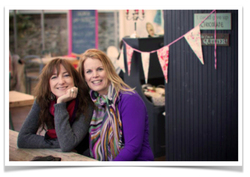
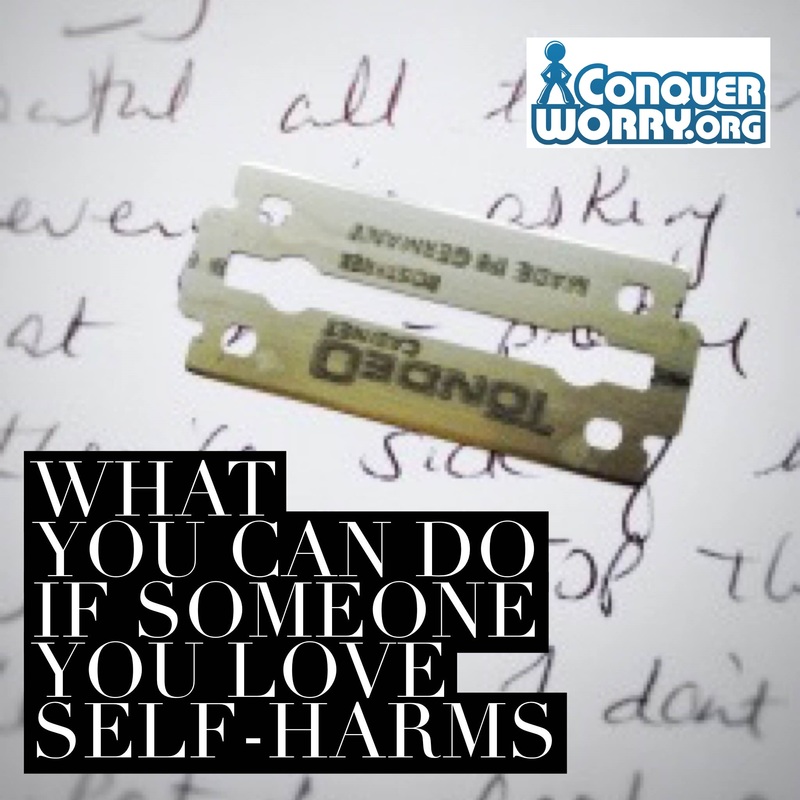
Not a week goes by that a therapist doesn’t hear about a client or a client’s friend self-harming. This is particularly true of therapists who work with teenagers – lately it feels like something of an epidemic.
After first hearing about self-harming behaviour – which usually takes the form of cutting, scraping, hitting or otherwise causing injury to the self – parents and friends usually react in one of two ways: Shock and disbelief followed quickly by panic or Anger and irritation that this this might be “just” attention seeking and therefore a type of manipulation. Both reactions are valid. Here’s what we suggest you do if someone you know/love is self-harming:
Do your best to avoid: 1: Asking for the gory details. You may feel the need to know so that you can feel like you know what you’re dealing with here – but this is your need, and will not be helpful. They will already be feeling vulnerable and shamed, and exhausted from telling you as much as they did. Now is not the time to push for more. 2: Jumping to the conclusion that this is ‘just’ for attention. Let’s be clear: it IS for attention – we need to leave the word ‘just’ out. And it’s a pretty dramatic way of getting it, isn’t it?! Instead, we need to consider ‘Why is this person going to such lengths?’ Be aware that something bigger than simply “just” looking for attention is definitely going on here. Even if it’s that they have not yet learned how to ask for support or acknowledgment. Again, there is always a reason. 3: Assuming that they are suicidal. While it looks violent and extreme, it is not necessarily a sign a suicidality, but it is serious, and deserves to be treated as such. Feel free to ask though, it might be a relief to them to be asked, and ay well take the power out of it for them. Back to points 3 and 4 above! 4: Insisting that they stop for your sake. This might be experienced as blackmail or that you are more concerned about your own upset than you are about theirs. They are already vulnerable and will see and hear everything through that lens, for now. 5: (Repeat) Dealing with this by yourself. If the person is self harming due to a crisis, outside help will be effective. If they are self harming to punish you or control you in some way, outside help will take the power out of that – either way, outside help is the way to go! Keep looking after you, and as always – you’ve got this, and we’ve got your back. - Two Wise Chicks |
Build Your Action Based Stress Reduction System
Popular PodcastsOlympian Suzy Favor Hamilton - From Fame to Prostitution to Advocacy
Hall of Fame Basketball Star Chamique Holdsclaw on Mental Resilience Diana Nightingale on her husband Earl Nightingale's Principles for Mental Health Success JoAnn Buttaro on Date Rape & PTSD Survival Story: Its Never Too Late Gabe Howard on BiPolar Advocacy Phil Fulmer on Teen Suicide Prison, Bipolar and Mania with Andy Behrman Columbia Univeristy's Dr. Rynn on OCD Archives
March 2018
Categories
All
|

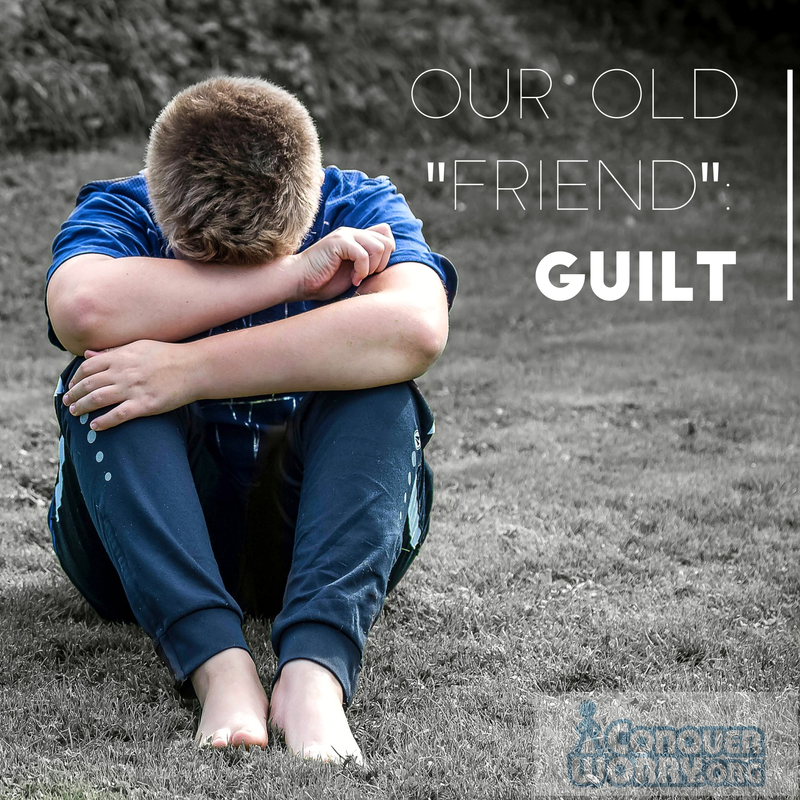
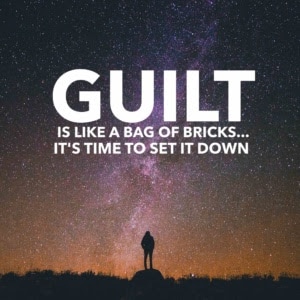

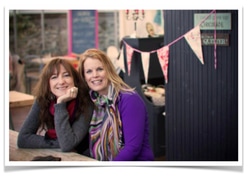

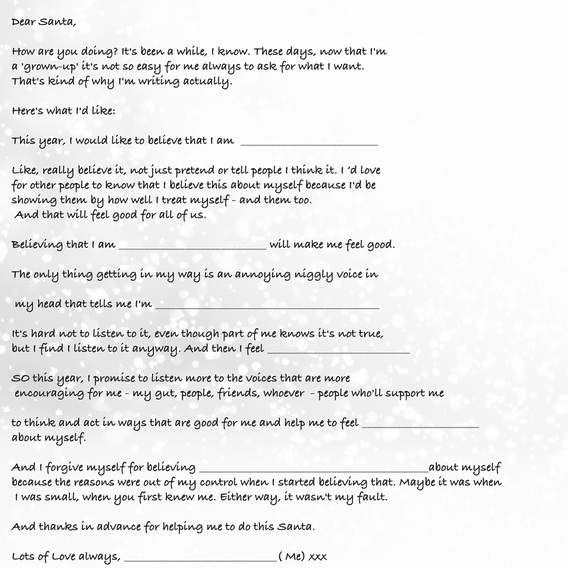

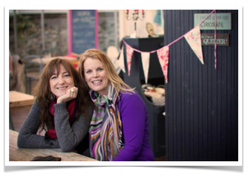
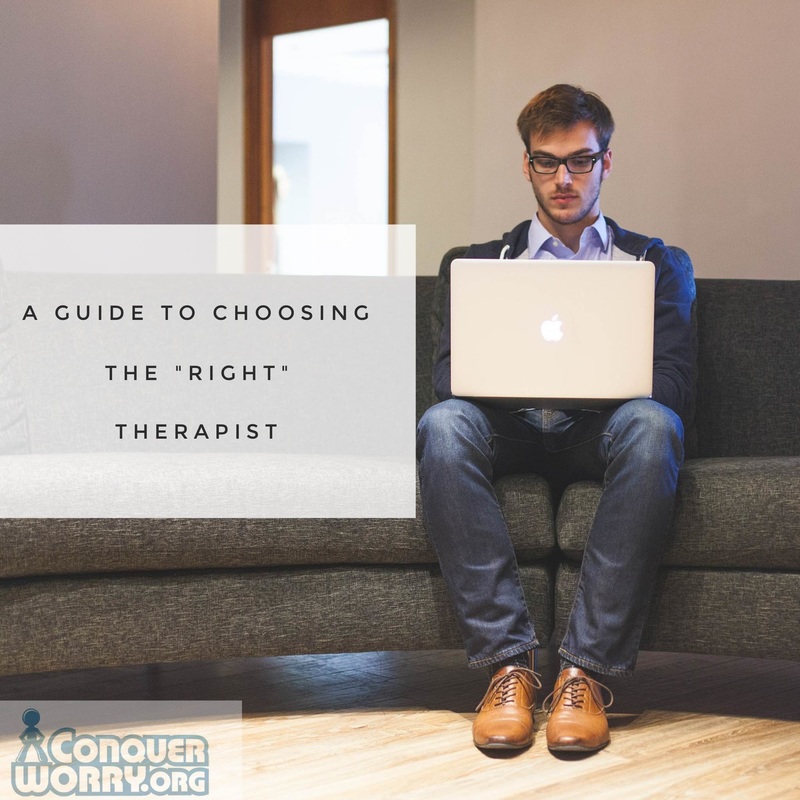
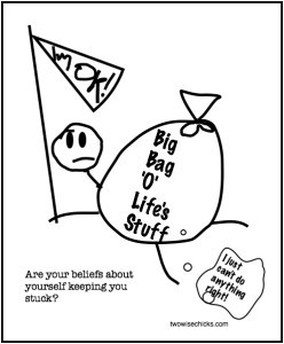

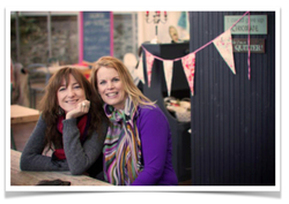
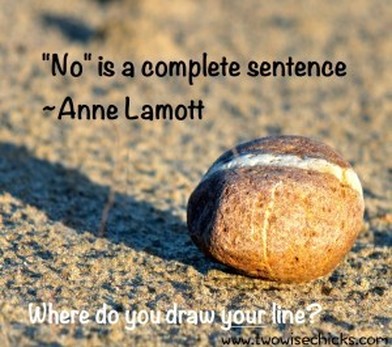


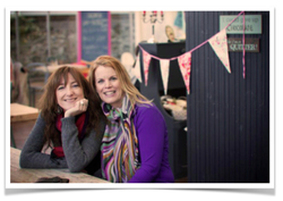

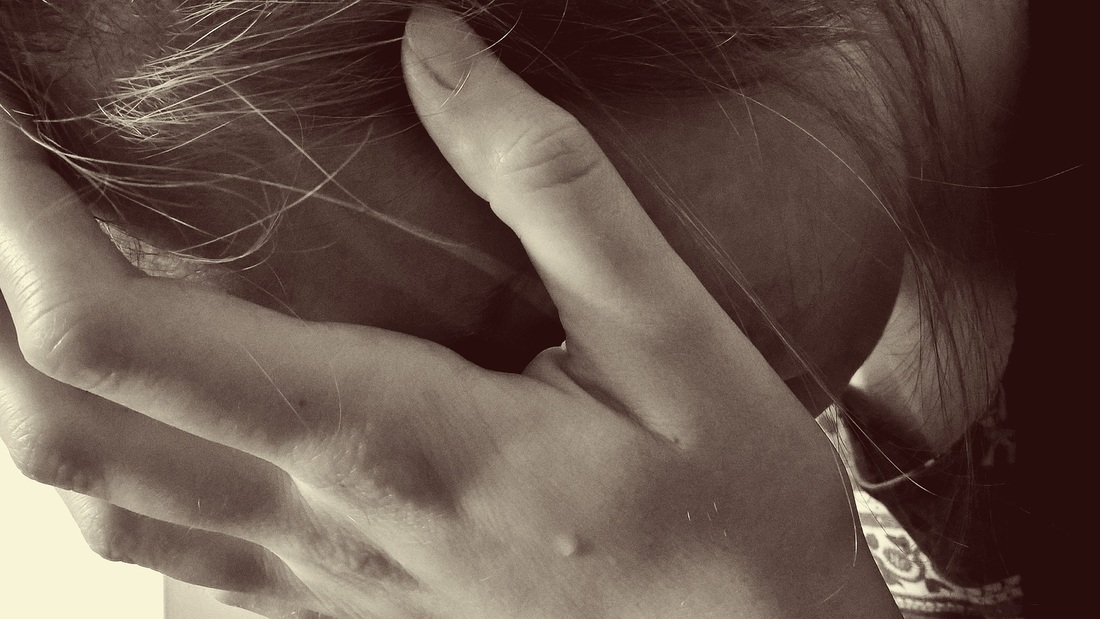


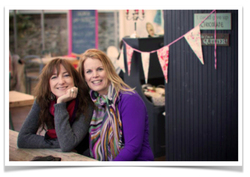
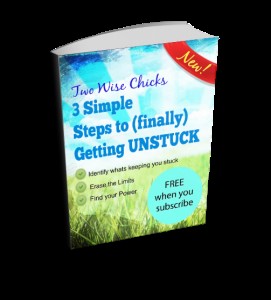

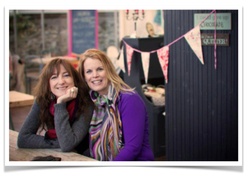
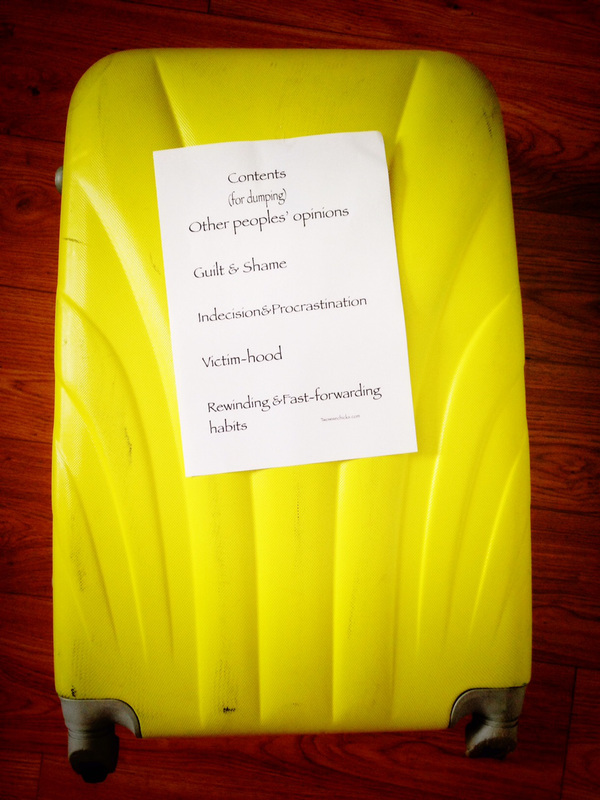
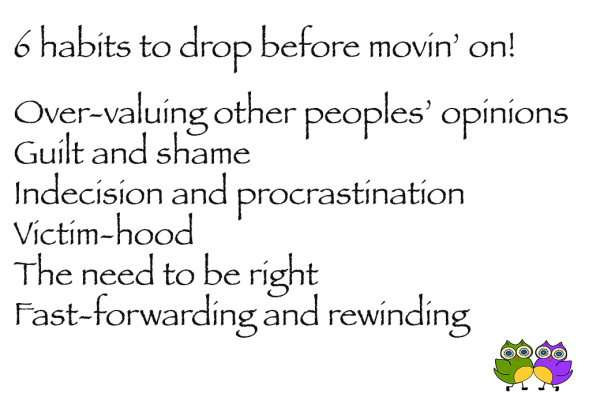
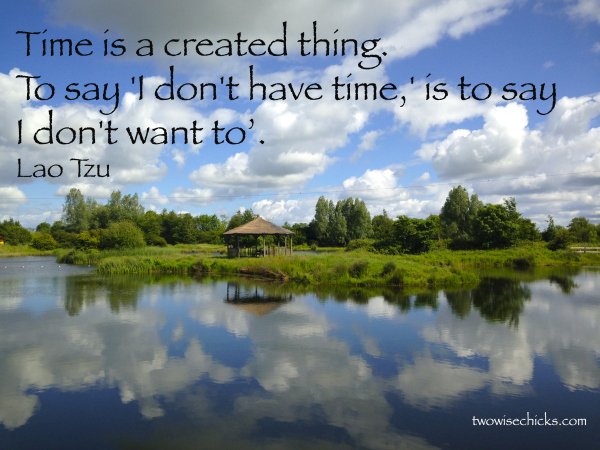
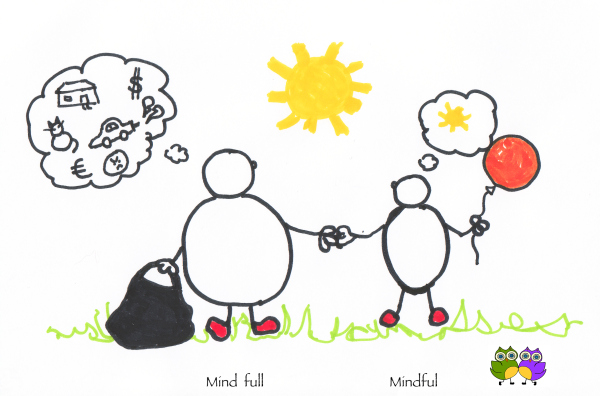
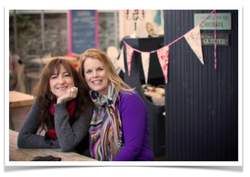

 RSS Feed
RSS Feed





